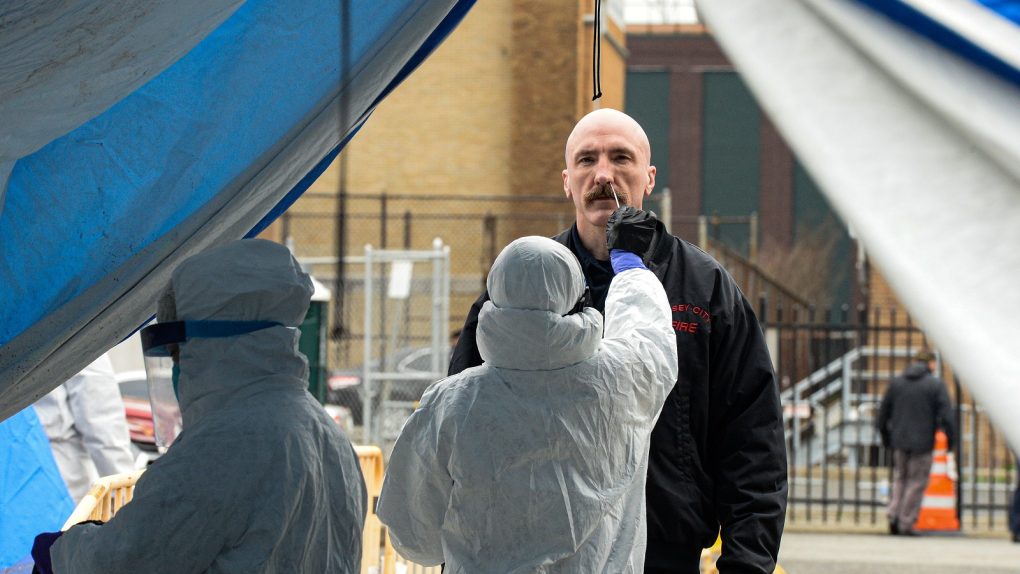- Eli Lilly is seeking emergency authorization approval for a promising coronavirus drug that was found to be an effective COVID-19 therapy.
- The company has several ongoing clinical trials for its monoclonal antibody drug, including one where the LY-CoV555 compound has been combined with another promising COVID-19 drug called remdesivir.
- Eli Lilly announced that the clinical trial studying this combination of drugs was halted out of an abundance of caution, but the reason for the halt remains a mystery.
Several clinical trials for novel coronavirus therapies have reached the final phase of trials, including repurposed medicines, brand new drugs, and coronavirus vaccine candidates. Some of them failed in testing and others will produce results in the coming months, including some of the more advanced vaccines that are expected to seek regulatory approval by the end of the year. But no tests will run completely smoothly, and that includes Phase 3 trials. In the past few weeks, we saw AstraZeneca and Johnson & Johnson pause their Phase 3 vaccine trials after patients developed an unexplained medical condition. AstraZeneca resumed the trial after a few days in all markets where it’s conducting the test except for the US.
Eli Lilly, the maker of a promising monoclonal drug, is already seeking emergency approval for its COVID-19 therapy after its tests showed it could improve the condition of COVID-19 patients. One of the drugs President Trump received during his coronavirus treatment is a cocktail of two monoclonal antibodies made by Regeneron, a company that’s also seeking approval for its drug. These monoclonal antibodies can be used to treat the illness and provide limited immunity against infections, at least in theory. Tests are still needed to prove the drugs work as intended. Eli Lilly is conducting several studies for its experimental drug, including one where it’s studying the combination of its monoclonal antibody and remdesivir. That’s the study the company just had to pause, but Eli Lilly won’t say exactly why the trial was halted.
Remdesivir is the first drug that proved its limited efficacy against the novel coronavirus. The antiviral can reduce the recovery time, although it won’t save all COVID-19 patients. Since it was approved for emergency use this past spring, we heard about plans of combining remdesivir with other therapies to improve the outcome of patients. Trump got the Rengeron antibody cocktail when he was hospitalized for COVID-18, and then he received both remdesivir and dexamethasone.
Eli Lilly started a trial in August where it combined its LY-CoV555 antibody with remdesivir to see if the combo would benefit hospitalized patients. The company disclosed on Tuesday that an independent data safety monitoring board for the trial known as a DSMB recommended a pause in enrollment out of an abundance of caution.
“Lilly is supportive of the decision by the independent DSMB to cautiously ensure the safety of the patients participating in this study,” said the company, per The Wall Street Journal. The company did not say exactly what the safety concern was, however. The National Institute of Allergy and Infectious Diseases (NIAID) is a sponsor of the study and said that 326 patients had been enrolled before the DSMB recommended the pause.
The NIAID explained that the board made the recommendation after a scheduled analysis of safety data for the first 300 patients. The board found “an overall difference in clinical status between the group receiving LY-CoV555 and the group receiving saline placebo.”
This unexplained difference sounds concerning enough to pause the entire study, but it could also be something minor. The safety board also recommended that Eli Lilly collect data from patients and follow up with current participants for safety and efficacy. The board will conduct another review on October 26th to decide whether or not the trial should resume.
Monoclonal antibodies are artificial antibodies that should block the virus’s spike protein and prevent it from binding to cells. This type of drug should not interfere with remdesivir. “Their mechanism of action is totally different,” Janet Woodcock said last week. “And the monoclonal antibodies being biological products are not going to have the kind of drug-drug interactions that you would see with two small molecules—for example, dexamethasone and hydroxychloroquine, where we have seen some interaction.”
Woodcock is the director of the Food and Drug Administration’s Center for Drug Evaluation and Research, and she is also part of the government’s Operation Warp Speed accelerator program for COVID-19 drugs and vaccines.








